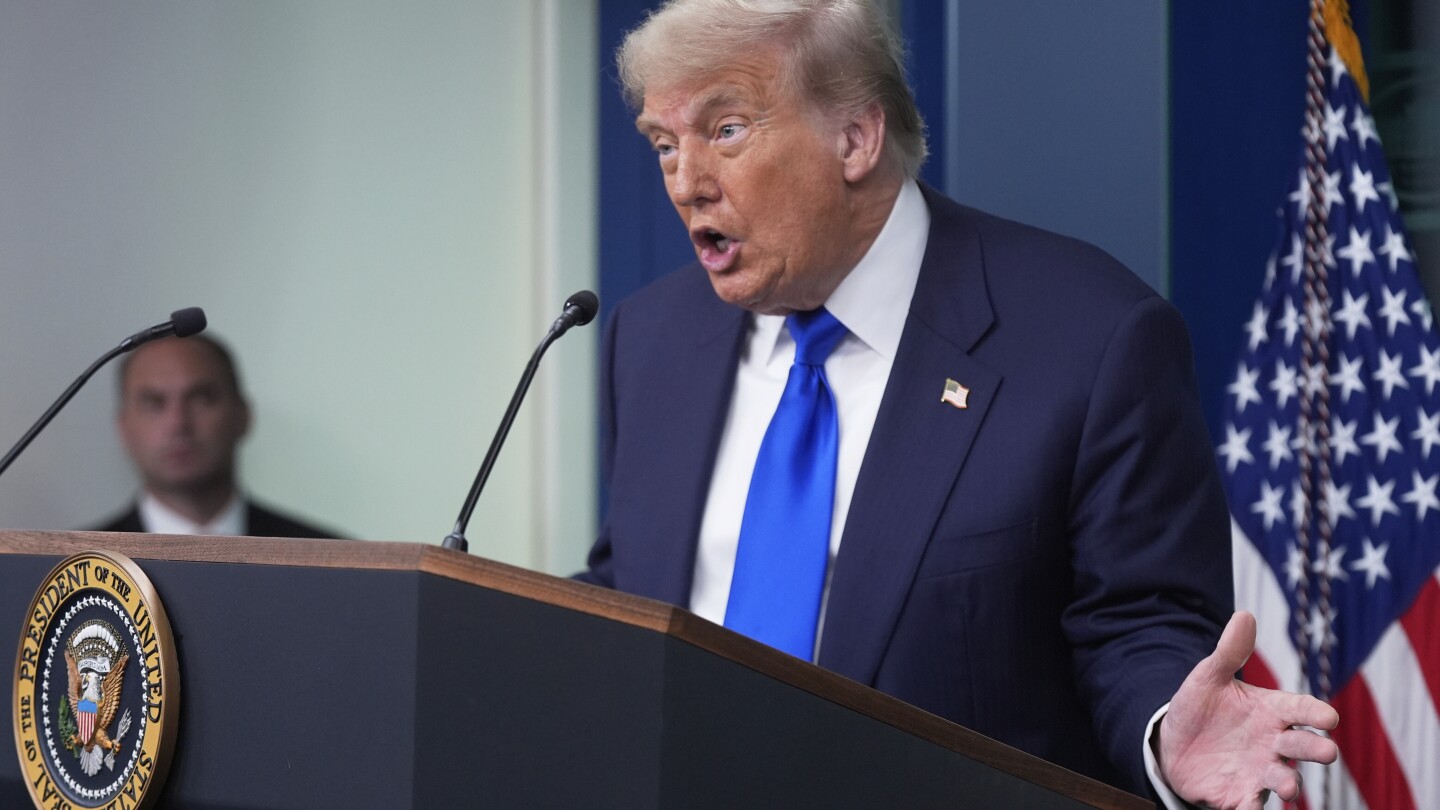WASHINGTON (AP) — President Donald Trump announced on Friday that he is suspending trade negotiations with Canada in response to its decision to maintain a tax on technology firms. Trump described the move as “a direct and blatant attack on our country” in a post on his social media platform.
The Canadian government has informed the U.S. that it intends to proceed with the digital services tax, which targets both Canadian and foreign businesses engaging with online users in Canada. The tax is scheduled to take effect on Monday.
“Based on this egregious Tax, we are hereby terminating ALL discussions on Trade with Canada, effective immediately,” Trump stated. “We will let Canada know the Tariff that they will be paying to do business with the United States of America within the next seven day period.”
Background on U.S.-Canada Trade Relations
This announcement is the latest development in the ongoing trade tensions between the U.S. and Canada, which have seen numerous ups and downs since Trump took office for a second term in January. The U.S. president has previously made provocative statements about Canada, even suggesting it could become a U.S. state.
Canadian Prime Minister Mark Carney responded to the situation, stating that Canada would continue to negotiate in the best interests of its citizens. “It’s a negotiation,” Carney said, emphasizing the complexity of the discussions.
Trump expressed confidence that Canada would eventually remove the tax, citing the economic leverage the U.S. holds. “Economically we have such power over Canada. We’d rather not use it,” he remarked, warning that the tax would not benefit Canada.
Impact of the Digital Services Tax
The digital services tax will impose a 3% levy on revenue from Canadian users for companies like Amazon, Google, Meta, Uber, and Airbnb. The tax applies retroactively, potentially leaving U.S. companies with a $2 billion bill by the end of the month.
Matt Schruers, chief executive of the Computer & Communications Industry Association, praised the U.S. administration’s decisive response.
“We appreciate the Administration’s decisive response to Canada’s discriminatory tax on U.S. digital exports,”
Schruers said in a statement.
Broader Trade Implications
The trade dispute with Canada is part of a broader pattern of trade tensions initiated by Trump. The U.S. has been discussing easing tariffs imposed on Canadian goods, but the digital tax has become a significant sticking point.
Trump has previously imposed tariffs of 50% on steel and aluminum and 25% on autos. A 10% tax on imports from most countries is also in place, with potential increases looming as the 90-day negotiation period expires.
Canada and Mexico face separate tariffs of up to 25%, ostensibly to combat fentanyl smuggling, although some products remain protected under the 2020 U.S.-Mexico-Canada Agreement.
Economic Interdependence
Despite the tensions, the economic ties between the U.S. and Canada are substantial. About 60% of U.S. crude oil imports and 85% of electricity imports come from Canada. Additionally, Canada is the largest foreign supplier of steel, aluminum, and uranium to the U.S., with 34 critical minerals and metals that the Pentagon is eager to secure.
Approximately 80% of Canada’s exports are destined for the U.S., underscoring the deep economic interdependence between the two nations.
Treasury Secretary Scott Bessent, when asked about the termination of trade talks, declined to comment, stating only, “I was in the meeting,” before moving on to other questions.
The future of U.S.-Canada trade relations remains uncertain, with both nations facing significant economic implications if the dispute continues. Observers will be watching closely as the situation develops in the coming weeks.





































































